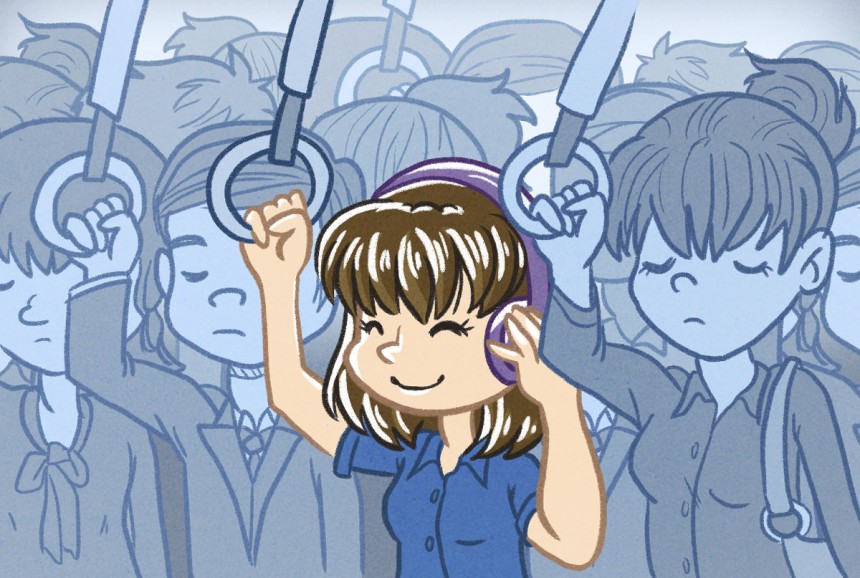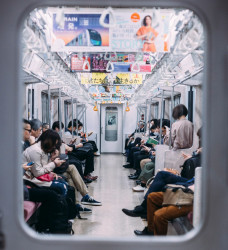
Over a year ago, I decided 2014 was when I was finally going to make the move to Japan.
While going through my old books, I came across a diary that I had kept when I first visited Tokyo as an 18-year-old. One of the last entries had been written on a park bench in Harajuku and read, “One day, I’m going to make this city my home.”
When I started telling family and friends that I would be moving to Japan, the most common question was, “Why Japan?”
My answer was simple, and it didn’t involve anime, temples, or even sushi. It wasn’t motivated by any deep-rooted desire to “lose myself” in a different culture, nor was it because I simply “fell in love” with the country and couldn’t see myself being anywhere else. My reason for moving to Japan can be summed up by two key things I witnessed while I was traveling in Tokyo for the first time: train etiquette and escalator queues.
We’ve all heard the expression, “packed like a can of sardines.” Well, I hadn’t seen it in the flesh until I found myself riding the Tokyo subway during the peak hours of approximately 6-8pm. During this time you’ll witness hundreds of commuters cramming into the trains as though their lives and the lives of all their loved ones depended on it.
You’ll see salarymen squeeze into spaces so tight you didn’t even think you could wiggle a toe in there, but somehow they manage to maneuver right through and prove you wrong (I’ve decided it has something to do with how Japanese people are efficient at everything, including the use of tiny spaces).
However, as awful as this might sound, I’ve found that being on these trains is actually the pleasantest of unpleasant situations. If you had trains this cramped in any other part of the world, you would probably choose to walk ten miles rather than subject yourself to the indecency of such a situation. However, in Japan I discovered that although the trains were full, younger passengers still offered their seats to seniors (maybe not always, but still sometimes). People still tried as best they could to keep out of your personal space, and those reading newspapers would fold them up into tiny squares to limit the area they took up.
Even though the situation is less than ideal, the way in which Japanese people are always self-aware, and the regard they have for people around them, makes circumstances like this tolerable and somewhat humbling as an outsider.
Getting off the train, I found another unexpected sight: a long line of people waiting to go up an escalator. I was used to finding long queues outside popular clubs or new restaurant openings, but when I first saw this phenomenon in Tokyo, I thought there had been a breakdown or an accident that was forcing everyone to walk single file on one side of the escalator. Upon reaching the top I realized there wasn’t anything jamming the line—people actually just chose to stand on one side to avoid blocking others who wanted to walk up faster.
Having just seen people risking their lives in order to squeeze onto a train, you would think these people had somewhere to be or were at least in enough of a hurry to push ahead of the line. Watching everyone standing patiently you kind of feel like their effort of squeezing onto the train was almost in vain.
But what I realized was that no matter how busy, tired or stretched people here are for time, a level of patience always remains—especially when it comes to dealing with other people. Drunk old men may challenge the point, but when I look around at everyone else, I see they’re the exception, not the rule.
In a society where people are known to be overworked and hard-pressed for time, Japanese people don’t let it show in the way they treat others. So when friends and family ask me why I chose Japan, I tell them I wanted to live somewhere, even if just for a short while, where people were just a bit more self-aware, a bit more patient, and a bit nicer, even if it’s in the most seemingly ordinary way.







